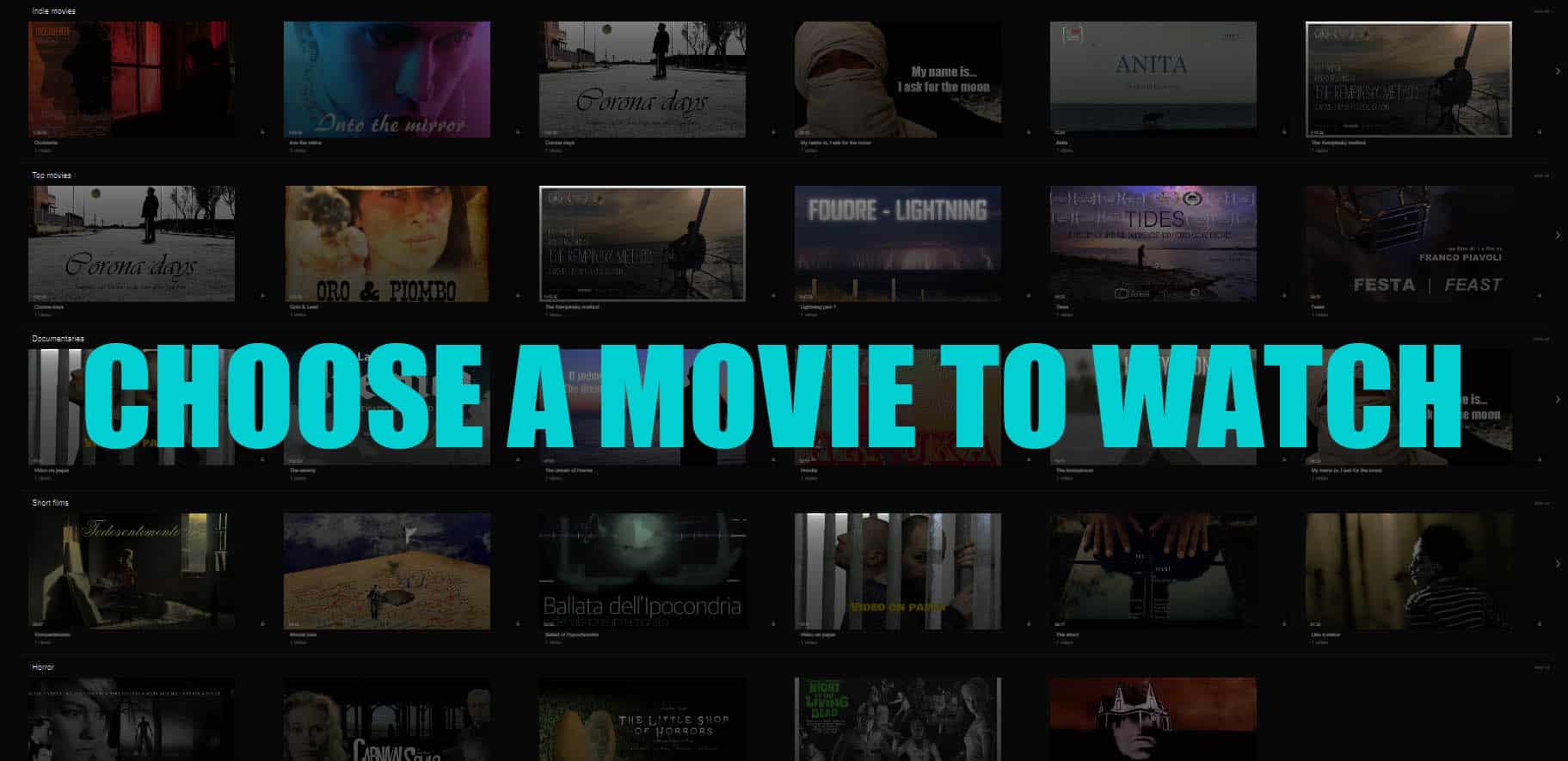The film “The Zone of Interest” is a cinematographic work that explores profound themes with an eye on history. Directed by Jonathan Glazer, the film addresses the theme of the aesthetic inviolability of the Shoah and highlights the contrasts between the apparently normal daily life of the German Höss family and the horror that occurs outside their walls.
With a combination of minimalism and abstraction, “The Zone of Interest” aims to make the viewer reflect on the consequences of war crimes and the importance of facing and understanding history. Through the characters’ stories and their complex relationships, the film invites audiences to consider the moral and social implications of actions taken during times of war and oppression.
Sandra Hüller’s Role in The Zone of Interest

In the film “The Zone of Interest”, Sandra Hüller gives an intense performance in the role of Hedwig Höss, the wife of the SS officer Rudolf Höss, who commanded the Auschwitz-Birkenau camp. Through no-nonsense acting and excellent management of stage space, Hüller brings to life a cold and ambiguous character.
Her performance is notable for its lack of emotion and absence of sentimentality, highlighting Hedwig’s moral ambiguities and her involvement in Nazi crimes. Sandra Hüller’s performance was widely acclaimed by critics, earning recognition and nominations in various film awards.
The Sound Realism of “The Zone of Interest”
One of the distinctive elements of “La zona d’interest” is its sonic realism. Jonathan Glazer spent a lot of time recording real sounds on the streets, capturing noises, screams and other sounds which he then inserted into the film to create a chilling and disturbing atmosphere. This choice helped create an immersive experience for the viewer, who becomes emotionally involved in the world of the film through the realistic and evocative sounds.
To create the sonic realism of “The Zone of Interest,” Jonathan Glazer took a meticulous approach to recording real sounds. He used directional microphones to capture ambient sounds and dialogue on set, creating an authentic atmosphere that recalls the real experience. This recording of real sounds was then edited and mixed to create a chilling racket, which amplifies the emotional effect of the film.
The presence of real sounds in the film helps make the audience’s experience more engaging and evocative. The sounds of screams, rifle shots and other forms of terror evoke the harshness and horror of the Auschwitz-Birkenau concentration camp, creating a feeling of tension and anguish. The sonic realism of “The Zone of Interest” transports the viewer directly into the heart of the action, making him feel an integral part of the story.
Furthermore, the sonic realism adds an additional level of authenticity to the film’s depiction of the historical context. The real sounds captured by Jonathan Glazer reflect the atmosphere of the streets and places of the time, providing audiences with an authentic look at life during World War II. This sonic realism allows the film to convey not only the horror and anguish of the concentration camp, but also the seemingly normal everyday life that took place outside of it.
The sonic realism of “The Zone of Interest” is a fundamental element for the cinematic experience offered by the film. Jonathan Glazer used his expertise in recording real sounds to create an authentic and immersive sound environment, which amplifies the emotional effect of the images and the actors’ performances. Thanks to the realism of the sound, the viewer is completely immersed in the world of the film, experiencing firsthand the tension, anguish and horror of the historical period represented.
The representation of Auschwitz in “The Zone of Interest”
Jonathan Glazer chose not to show the Holocaust directly in “The Zone of Interest”, but to represent it through the daily life of the Höss family, who lives next to the Auschwitz-Birkenau camp. Although the film’s perspective follows the seemingly relative normality of the family, the presence of horror is constantly felt through a symphony of indistinct sounds that evoke screams, breathing, banging and other forms of terror. This indirect representation of the Holocaust helps to create a feeling of oppression and upheaval in the public, highlighting the reality of the industrialization of Nazi crime and the devastating consequences of the Nazis’ actions.
The Study of “Postures” in “The Zone of Interest”
In the film “The Zone of Interest”, Jonathan Glazer focuses a lot on the study of the “postures” of the actors. In particular, Sandra Hüller stands out for her symbolic gestures and precision in acting. Through extremely precise movements and expressions, Hüller manages to communicate without the need for words, adding a level of depth and meaning to her performance as Hedwig Höss.
Through carefully calibrated movements and meaningful facial expressions, Hüller manages to convey complex emotions and create an emotional bond with the viewer. His mastery of using the body as a wordless communication tool allows the audience to fully immerse themselves in the story and appreciate the depth of his acting talent.
The Faithful Reconstruction of Auschwitz in “The Zone of Interest”

To ensure maximum authenticity, director Jonathan Glazer collaborated with the Auschwitz Museum to faithfully reconstruct the concentration camp on the film set. Using period photographs and historical evidence, Glazer created an accurate replica of the Auschwitz environment, allowing the actors to fully immerse themselves in the story and characters.
Furthermore, the scenes were shot with the help of remote cameras, which allowed the actors to move freely and improvise, ensuring greater freedom of expression and greater realism in acting. The faithful reconstruction of Auschwitz helps create an authentic and engaging environment.
The Critics’ Reaction to “The Zone of Interest”
The film “The Zone of Interest” has aroused mixed reactions within film critics. Some critics have praised the film for its emotional power and realistic depiction of the horrors of the Holocaust. They appreciated the film’s ability to spark debates and reflections on the past and its consequences, dealing with complex issues with sensitivity and depth.
However, there were also critics who expressed dissatisfaction with the film’s distant and minimal approach. Some felt that the lack of human emotion and feeling makes it difficult to empathize with the characters and understand the story. They raised doubts about the film’s ability to fully engage the viewer and do justice to the gravity of its subject matter.
In any case, “The Zone of Interest” is undoubtedly a film that leaves an emotional impact on its viewers and that opens up spaces for discussion on complex and delicate topics. Critical response has demonstrated that the film is capable of generating meaningful debate and stimulating deep reflection on the consequences of war crimes and the importance of addressing and understanding history.
Curiosities about “The Zone of Interest”
“The Zone of Interest” is a film that offers many interesting curiosities. One of the starting points is the inspiration from the novel of the same name by Martin Amis. Director Jonathan Glazer drew inspiration from this fascinating story to create a powerful and engaging work of cinema.
One of the peculiarities of “The Zone of Interest” is that it was filmed entirely in Poland. The choice of filming in Poland was essential to guarantee authenticity and realism to the narrative. Furthermore, the director obtained permission to consult the historical archives of the Auschwitz Museum to create an accurate reconstruction of the story.
“The Zone of Interest” is also significant in Jonathan Glazer’s journey as a director, as it represents his first work in the German language. His skill in experimenting and tackling new artistic challenges is reflected in the final result of the film.
Presented in competition at the 2023 Cannes Film Festival, “The Zone of Interest” received praise from the public and critics, as well as receiving prestigious awards and nominations. Among the awards obtained are the Special Jury Grand Prix Award and the FIPRESCI Award.
The Awards and Recognitions for “The Zone of Interest”
“The Zone of Interest” has received several awards and nominations at prestigious film festivals and awards shows. The film was awarded best foreign language film at the Oscars, while at the Golden Globes it received nominations for best drama and best foreign language film. At the 2023 Cannes Film Festival, the film received the Grand Prix Special Jury Award and the FIPRESCI Award. These awards testify to the quality and importance of “The Zone of Interest” as a cinematographic work of great impact and artistic value.
The Historical Context of Auschwitz
Auschwitz is one of the largest death complexes built during the Third Reich. Used as a concentration camp and extermination camp, Auschwitz operated from 1940 to 1945 and was responsible for the deaths of over a million people, most of whom were Jews. The camp was the site of the “Final Solution to the Jewish Question”, a mass extermination program devised by the Nazis. The entry of Auschwitz into the UNESCO world heritage list in 1979 testifies to the historical and cultural importance of this place, which represents a dark and tragic part of the history of humanity.
The Interpreters of “The Zone of Interest”
The cast of “The Zone of Interest” includes several talented actors. Sandra Hüller plays the role of Hedwig Höss, while Christian Friedel plays Rudolf Höss. Other cast members include Ralph Herforth, Max Beck, Stephanie Petrowitz, Marie Rosa Tietjen, Lilli Falk and Wolfgang Lampl.
The Plot of “The Zone of Interest”
The plot of “The Zone of Interest” focuses on the daily life of a German family living next to the Auschwitz concentration camp during World War II. The Höss family lives in an elegant country house by the river, yet behind their walls lies the horror of the Auschwitz-Birkenau camp.
The film follows the family on and off the field, exploring the complex family dynamics and stories of courage and love that develop in that extreme context. Through the portrayal of these intertwined stories, the film highlights the nuances of the human experience in such a dark and tragic time in history.
The Message of “The Zone of Interest“
The film “The Zone of Interest” has a powerful message that invites viewers to reflect on war crimes and the importance of understanding history. Through a realistic depiction of the horrors of Auschwitz, the film highlights the complexity of human nature and highlights the devastating consequences of actions taken during times of war and oppression.
With an intense and profound look at history, “The Zone of Interest” stimulates the public to consider the moral and social implications of atrocities committed in the past. The film invites viewers to become aware of the violence perpetrated and to face the weight of the collective responsibilities that derive from it.
It is a message that calls for awareness and humanity, opening our eyes to the atrocities committed in war crimes and calling for deep reflection on human nature and our responsibility to understand and fight evil.
Review

Of course, looking at how the Oscar awards have gone in recent years, one shouldn’t have too many expectations, but with films of the caliber of Perfect Day and I, Captain in competition for the best foreign language film, there may also be some doubts that things have changed to the editorial line. Perfect Day, for example, is the exact antithesis of the cinema that Hollywood and the Oscars like: an anti-spectacular film with profound content and a spare and rigorous aesthetic that narrates human life like only great authors such as Wim Wenders and independent cinema free from the chains of Industry they know how to do.
Perhaps, by throwing a film like Perfect Day among the nominations, we can seem inclusive, sensitive to art films and the unspectacular depth of low budget auteur cinema? Probably yes, but then, when the mouse sees the cheese the temptation is too strong, and it is difficult to resist.
Jonathan Glazer’s The Zone of Interest, Oscar for Best Foreign Language Film in 2024, begins with an idea of cinematically interesting conflict, at least potentially. The head of the Auschwitz concentration camp is a career man from the Nazi army who lives with his family in a bucolic villa surrounded by a well-kept flower garden, Jewish servitude, in which everything is in obsessive order, everything is neat and clean and everything seems to work perfectly, including the lives of the little children who are growing up healthy and strong.
The family of the head of Auschwitz is the classic Mulino Bianco family, we Italians would say, where nothing seems out of place and everything flows like in a sweetened commercial: the care of the flowers in the garden, the officer’s phone calls and business meetings German that are carried out in a commendable way with prizes and rewards, the harmony that reigns in the house.
The problem, however, lies in what happens beyond the high silence that separates the villa from the Auschwitz camp where the screams, the shots, the extermination of poor innocent Jews can be heard in the distance day and night, and where the smoke rises of incinerators that kill thousands of Jews every day. The direction proceeds in an anti-spectacular, rigorous way: throughout the film we will never see anything of what happens inside Auschwitz, except in a single shot in which the smoke from the incinerators covers the face of the German officer until it transforms the screen into a series of white frames.
There is a chilling scene in the first part, perhaps the most successful scene in the film: the head of the extermination camp has a meeting with other officers of the Nazi army and they talk in a professional tone about the efficiency of the incinerators and how the their perfect alternating functioning guarantees the continuity of the extermination, as in any work meeting.
Overall, however, “The Zone of Interest is an inconsistent film which apes the rigor of a certain “cold” auteur cinema and which in its artistic ambition is exaggeratedly fake, boring from start to finish. Towards the end the story cinematic becomes involuntarily ridiculous, a kind of farce which lacks any creative inspiration. It completely lacks the ability to show the conflict, to excite the audience, despite the theme of enormous importance, that is, the banality of evil. The film is repeated for 105 minutes basic idea which at the 10th minute has already exhausted all its potential.
In my opinion, a great film can be recognized because it is capable of powerfully showing the conflict and transformation of the characters in almost every shot. A good film is recognized by the fact that it is capable of clearly showing the conflict and transformation of the characters in at least every scene. A mediocre film tries to show the conflict and transformation of the characters in at least every sequence. Here conflict and emotion remain at large from start to finish, making only a rare, occasional appearance.
In “The Zone of Interest” no transformations of any kind occur either within the sequences, nor within the scenes, nor within the entire film. Is the German officer’s transfer to another city, his conflict with his wife who does not want to abandon his beloved villa in Auschwitz, and his final retching which should testify to his inner change a transformation? Compared to the topics of the film it’s really little stuff. The basic idea of the villa that borders the Auschwitz camp could have been fine for a 5/10 minute short film.
There are no real characters in this film but only “functional figurines” that in some way should serve to move the story forward. But an entire film can be based on the idea of a visual conflict of a wall that separates two worlds like this close yet at opposite ends of Evil? Absolutely not.
The director continues the story as an exercise in style which after a while becomes irritating, without ever igniting the emotions or reflections of the audience, also inserting unmotivated avant-garde scenes, such as the black and white night sequences, which seem thrown in by chance and do not hook into the structure of the film. This is probably one of the most inconsistent films on the theme of the Holocaust, in a period of total inconsistency of the Oscar awards.
It didn’t prompt me to make any kind of comparison with the great films of the year like Perfect Day or I, Captain. More than a film, “The Zone of Interest” is an ideological exposition for images with zero emotional impact, without interesting characters, almost an exercise by someone who does not understand the nature of storytelling with moving images. A nature that passes, precisely, through conflict, emotions, depth of thought and the figurative ability to merge content with the aesthetic form of vision, to go beyond the surface of forms to “reveal”.
The basic idea of the film could have been the starting point of a work that would then have been the finished film, but here it was decided to skip the entire working and writing process to directly expose the basic idea repeated for the whole movie. Is it those sudden bursts of sound with the music that reproduces the horror and the distant moans, beyond the wall? Even that is not destined to explode and have a significant evolution: it seems to be placed in the film as an extra frill.
We are light years away from “Son of Saul”, a film of frightening power that you will never forget and which truly renders in an implacable way the monstrosity of the Holocaust, the horror in the face of unmotivated wickedness, also awarded with Oscar for the film in a foreign language, but now more than a few years ago, when these gentlemen who award prizes and trophies still had some remnants of credibility. Now they have thrown off the mask.



